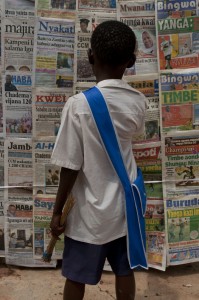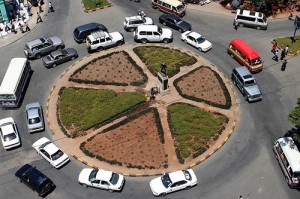
It appears difficult to decipher people’s sentiments in the news these days. Adorno and Horkheimer noticed it was intentionally difficult about half a century ago, claiming that forces behind mass media controlled, even created, cultures.
Recently however, it has been particularly difficult to decipher sentiments of people who are involved with demonstrations, protests and riots globally. Libya, Syria, Yemen, Chile, Uganda, Somalia, Spain, New York… the list goes on.
I remember when I arrived back in London during the riots in August; it was interesting to see rioters expressing that they were angry at wealthy people. It was something the BBC did not seem to understand. The cause of those riots is another discussion altogether, but the media today does not seem to fully reflect how people are feeling. Yet, the media is able to show and tell what people are doing.
Regardless of how mass media will show and tell things, I suggest we consider a few questions. The goal of these questions is to raise critical awareness about how each demonstration, protest and riot around the world is told to the rest of the world, and to imagine other ways to “occupy” a way of thinking.
1. Were all the protests globally sparked by the same events?
It is easy to generalize and ignore some causes of each protest. Light conversation may include sentences like “people are angry with the government” or “the poor are tired”. News headlines will include political, economic or military verbiage. But if you look a little deeper, things begin to change color and social values begin to emerge. That is where a diverse set of historical tensions come to light.
2. Are all countries’ problems the same?
This is a logical question that follows from number 1 above. If the protests themselves claim to be asking for different things, then should we not assume that each country in which these protests occur has a different set of problems across the political, economic and social spectra?
3. Do all protesters have the same suggested plan of action?
To know this for certain would be to conduct a large survey. But another way to ask this question is what do protesters want changed? Is it a particular stance against one person in power? Or is it a stand against a certain institution? Is it power problems or parking fees? Perhaps it is a combination of all of those plus more. The point here is that even if there are a 1,000 demands, we should keep a list in case the media or anyone else asks one day.
4. How will you communicate and keep track of what’s happening?
Not all countries have widespread broadband. In many, the mobile phone is popular, and applications that create social networks have been instrumental in recent protests. But do the written sentiments of mobilizers online transfer to real sentiments in the real world? And even when they do, do they translate back into written or audio formats when recorded by the onlooking media?
5. What is your occupation?
Occupation could mean two things; your job, or your spacial (ie: physical) occupation. I ask this question with reference to both meanings.

What will be your job if the protests begin in our home cities? What roll will you play?
And what spaces will you occupy? This refers to tangible, physical space as well as intangible, invisible space. Will you physically march to Askari Monument in Dar-es-Salaam or will you work to occupy the seat of a PM in your mind first and then in reality after a couple of years?

